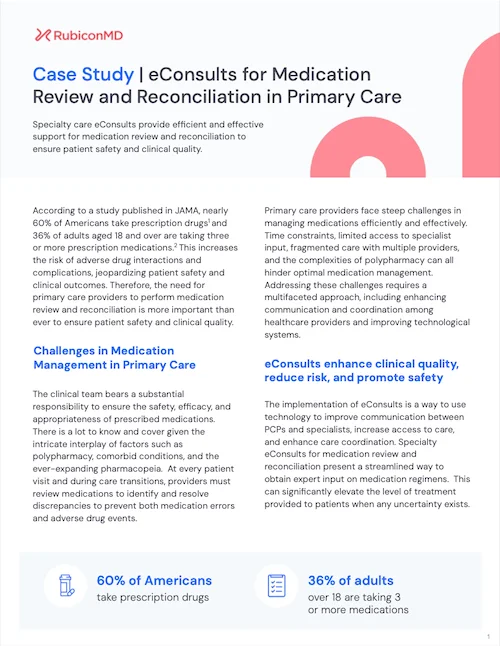Building eConsult Programs Aligned to Quality Initiatives for More Effective Value-Based Care
As primary care providers and health systems transition from traditional fee-for-service models to value-based care (VBC), eConsults are a scalable,…
Integrating eConsult technology into primary care enables more accessible, comprehensive, and high-quality care. Specialist-informed care plans are proven to reduce costs and enhance the patient experience. It’s now widely known that eConsult platforms improve care and streamline communication between primary care providers and specialists. However, selecting the right eConsult platform and effectively implementing this technology can be daunting, so we’ve pulled together a handy checklist to bring more ease to this process.
This checklist will help you select a vendor that best aligns with your needs. Download the full best practice guide (below) for healthcare providers when choosing an eConsult platform.
Choosing the right eConsult platform requires careful consideration of your organization’s needs, a thorough evaluation of the options available, and a readiness to address the challenges that come with implementing a new solution. While the transition may not be without its hurdles, the long-term benefits of enhanced patient care, improved efficiency, and cost savings make eConsult platforms a valuable addition to the modern primary care landscape. By embracing these innovative tools, healthcare providers can ensure they are well-equipped to meet the evolving demands of patient care in the digital age.
To explore RubiconMD eConsult solutions – schedule a demo or contact us today.
As primary care providers and health systems transition from traditional fee-for-service models to value-based care (VBC), eConsults are a scalable,…
Access to specialty care shouldn’t depend on your zip code, insurance type, or income level—but for Medicaid patients, it often…
In recent years, eConsults have emerged as an impactful tool for health plans to increase value and lower specialty care…

Explore real examples of specialty care eConsults providing efficient and effective support for medication review and reconciliation.